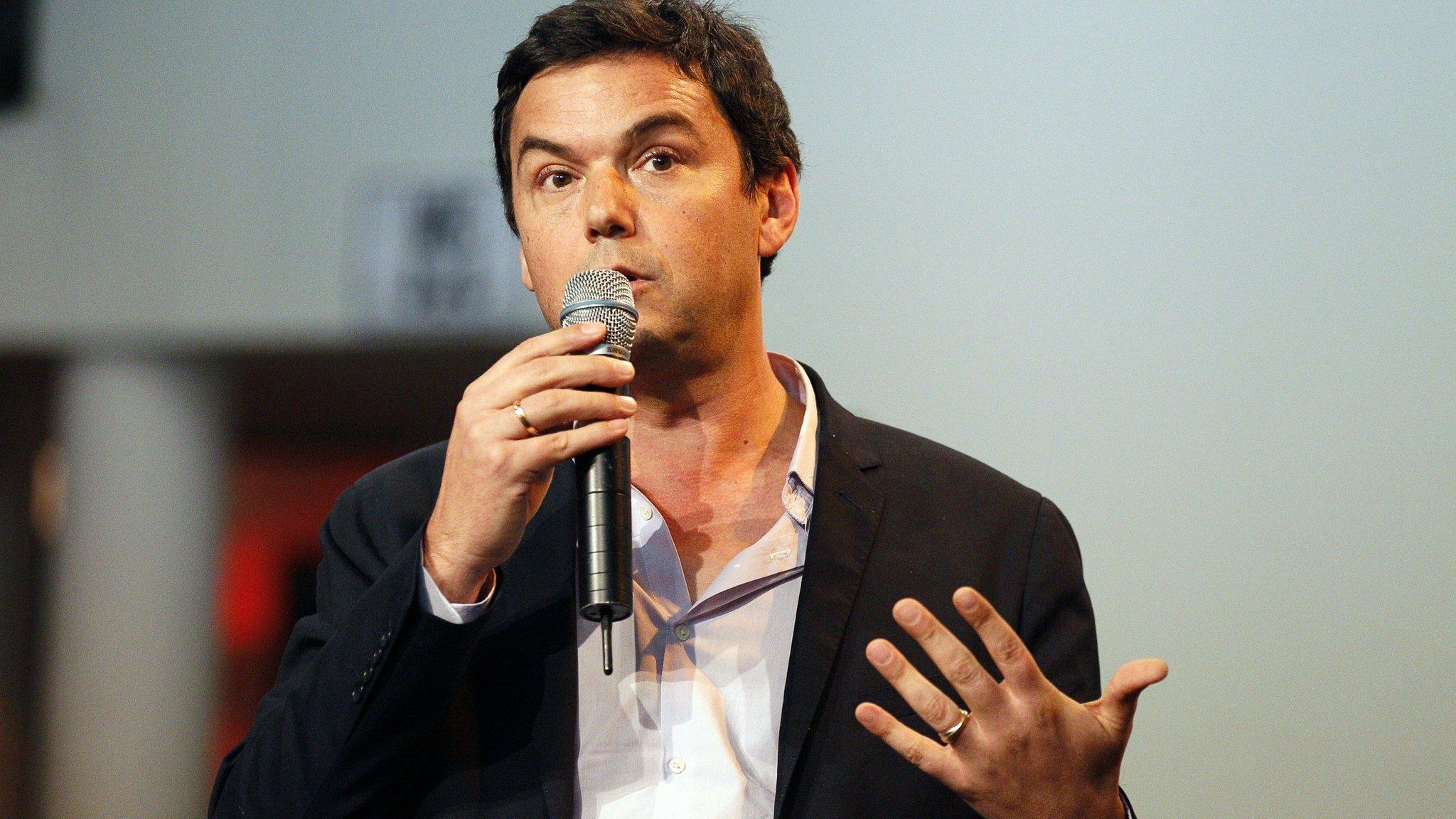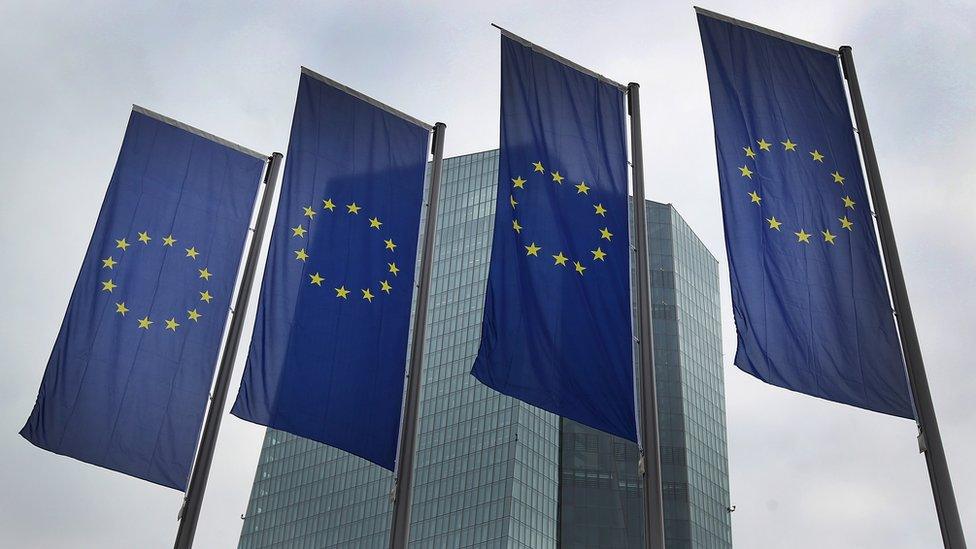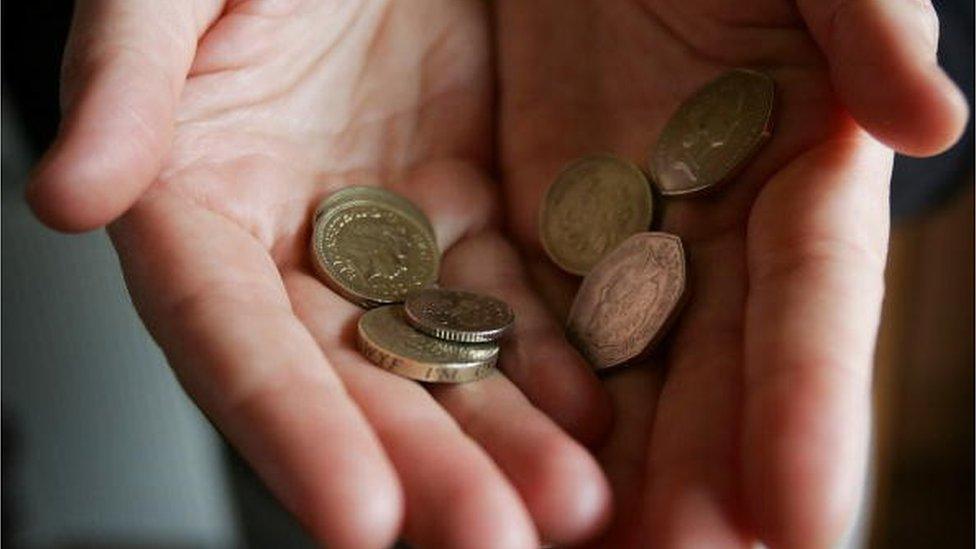Piketty: EU should welcome one million immigrants a year
- Published
- comments

He is the French economist who shot to international fame following his 2013 book, Capital in the Twenty-First Century, which dealt with inequality in the modern world.
Now Thomas Piketty has launched a new crusade - an attempt to change the debate on mass immigration, which he describes as an economic good.
In a wide-ranging interview with the BBC, the chairman of the Paris School of Economics and visiting professor at the London School of Economics told me the European Union would benefit from a major increase in the inflow of people from the rest of the world.
"The European Union has the capacity to absorb a large flow of migrants, one million per year in terms of inflow net of outflow," he said.
"This is exactly what we had between 2000 and 2010 and this was working in the sense that unemployment was being reduced.
"The problem is - with the austerity policies and with the recession - now we are in a situation where it's very difficult in particular with southern Europe, with the terrible economic situation that we have created there in particular."
Mr Piketty was speaking to mark the launch of his new book, Chronicles On Our Troubled Times, a collection of essays he originally wrote for the French newspapers Liberation and Le Monde and published in English for the first time.
In the book Mr Piketty argues that, with a population of 510 million, the European Union is well able to cope with more immigrants.
The population of the EU has only risen by 0.2% a year since 1995, he argues, compared to 1.2% for the world's population over the same period.
According to Eurostat, the official statistical arm of the European Commission, a total of 3.4 million people came to the EU during 2013.

Some 2.8 million left, leaving a net immigration figure of around 600,000.
Between 2013 and 2014, the UK saw non-EU net migration of 157,000, according to the Office of National Statistics, a figure that has risen since then.
Mr Piketty said that slow growth across the eurozone had been exacerbated not just by a lack of immigration but also by austerity policies aimed at reducing public expenditure.
"I think there has been an attempt, particularly in the eurozone, to reduce the public deficit too fast," he said.
"When you look at the growth trajectory of Europe as compared to the United States, I think it's very clear that we started a new recession in 2011, 2012, 2013 because we have tried to reduce the public deficit too fast.
"If we had taken our budgetary decision in a eurozone parliament in a democratic manner rather than through these automatic rules about budget deficit [we could have avoided] excessive austerity and the rise in unemployment and xenophobia right at the time when there was a true need for Europe to be more open with respect to the rest of the world, in particular regarding the refugee crisis."
I ask him, if he were an adviser to George Osborne, what he would be saying about the Treasury's target of creating a budget surplus by 2020, eliminating the deficit.

He smiled in response - Mr Piketty knows he is not likely to be the chancellor's favourite economist.
"What I find particularly incredible in this policy is that, OK, we need to cut the deficit, we don't have money, we need a surplus," he said.
"But we have money to cut the tax of the higher income groups, so I think it's a complete contradiction and I think that's very hard to understand for the general public.
"I think you have some people in this country who have benefited from growth much more than others in the past decade and you cannot just give more and more to those who already have more."
The Treasury's analysis is different, with officials pointing to research from the Institute for Fiscal Studies , externalwhich says that income inequality has reduced since the 2008-09 recession.
Rather than looking at the impact of tax changes on income, the Treasury analyses taxes paid as a proportion of the total.
Their figures show that in 2010, the richest fifth of households paid 49% of all taxes whereas the poorest fifth paid around 6% of all taxes.
By 2020, the proportion of tax paid by the richest fifth will have risen to 52%, with the poorest fifth paying around the same proportion, 6%.
Mr Piketty says that income inequality figures mask a broader problem of wealth inequality which is still growing.
"If you compare the 1980s and the 1970s with today - 20 or 30 years down the road - there's absolutely no doubt that not only in the US but also in the UK and in most developed countries we have had rising inequality," he said.